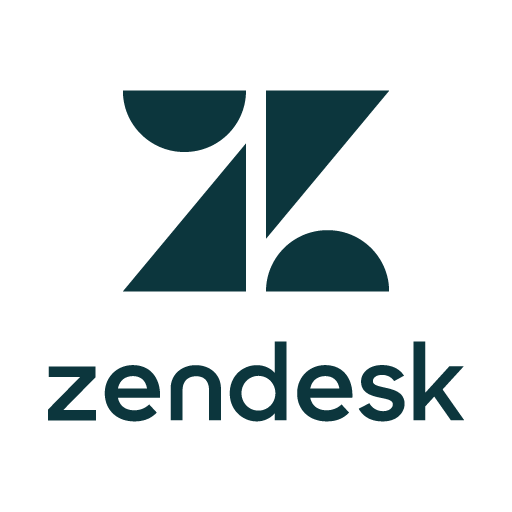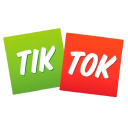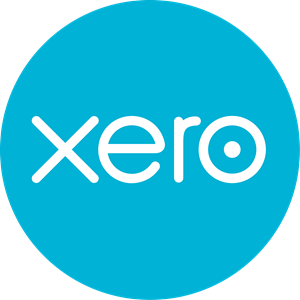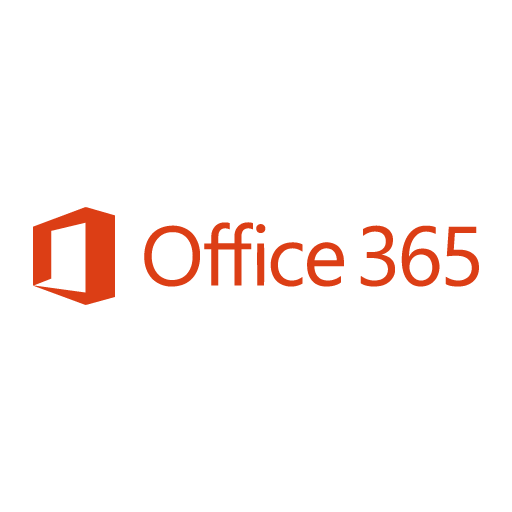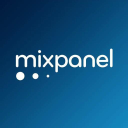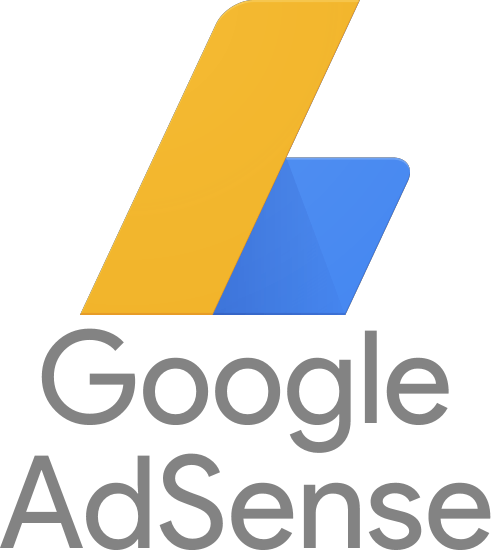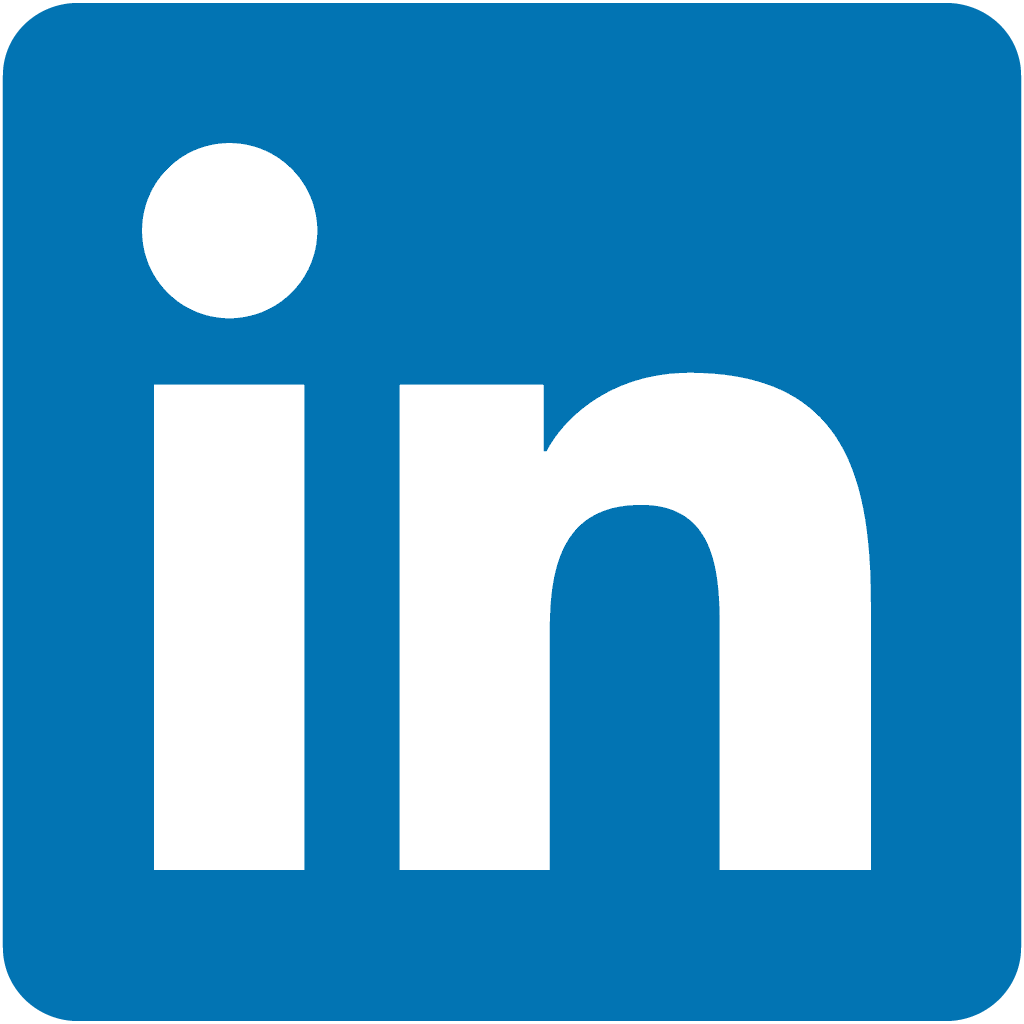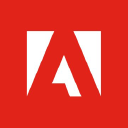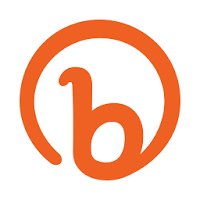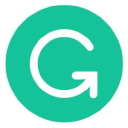
How We Built An XR Performances Platform For Artists [Volta XR]
Hey, my name is Mitchell Bayer-Goldman and I’m a co-founder and COO at Volta. In my role, I lead on Growth, Partnerships, Fundraising, Data analytics, and all things Financial & Compliance like budgeting, modeling, contracts, etc. Volta is a tool that helps artists create their own interactive experiences.
It’s never been more competitive to be a musician - there are 100,000 new tracks uploaded to Spotify each day, with 90% of those attracting zero listens), meaning it’s never been more important for artists to find a way to stand out.
Volta offers a way in which has typically been guarded by expensive production studios that have six-figure budgets, 6-months of lead time, and gated access. In effect, Volta is a free, self-service XR creation platform that allows creators to construct and broadcast metaverse-reaching immersive experiences to an audience, wherever they are.
Volta allows artists to use any audio source (desktop audio output, midi controllers, metadata, DAWS like Ableton Live or Logic Pro, etc) to automate various visual effects of the world, in sync with their music in real-time — the first-ever initiative of its kind.
We won one of TIME’s Best Inventions of 2021, were listed in the Startups Top 100 Directory in 2022 as Top 5 in Music, and have powered everything from Glastonbury Festival, to Deadmau5 at The Brooklyn Mirage New York, to Maya Jane Coles at Amnesia Ibiza and Ian Diorr at Lollapalooza Berlin.
We’ve worked with other prominent artists like Richie Hawtin, Bonobo, Jamie Jones, Imogen Heap, and Sasha. We’re backed by several VCs, including Andreessen Horowitz, Boost Capital, and Supernode Global, we completed the Techstars accelerator in 2021 and have partnerships with Beatport, Microsoft, Unity, and many more

What's your backstory and how did you come up with the idea?
I’ve had quite a varied background and bring a lot of lessons with me to Volta. On that note, I started as a professional racing driver when I was a kid and won several British Championships karting to Formula Ford).
I then built an event management business when sponsorship for my racing career dried up in 2008. I managed to sell that business whilst I was at University studying Economics at Warwick and moved into a career in Investment Banking which spanned 5 years across Barclays, JP Morgan, and Goldman Sachs, in their complex solutions group.
It took me quite some time to leave the sector as I suffered, like many, from imposter syndrome - who on earth would want to hire a Derivatives Investment Banking specialist? Let alone worrying I had zero transferable skills in the startup world.
I finally leaped and left the investment banking world after I was promoted as an associate in 2016 to co-found my first tech startup, nez, a fast-growing software startup that helped the hospitality/retail sector gain more customers.
That business went from strength to strength, and we grew it to over 300,000 customers in the UK, with 5 rounds of funding and a hockey-stick growth curve with market-leading unit economics.
It turned out I had many transferable skills: attention to detail, flawless execution, the ability to conduct myself at the highest degrees in meetings, and a keen eye for fundraising and analytics. Investment banking did set me up to be a Founder Operator, which I’ve learned is the perfect role for me.
We were gearing up to exit when the pandemic hit, leaving us to go from our best week of revenue to zero in 27 minutes. It was heartbreaking watching 5-years of sweat, blood & tears blow up on my face. We were stuck in terms of pivots as our entire business was focused on sending customers (who had to quarantine) to the high street (which was closed). The delivery giants only accelerated and left us behind.
We did try and salvage the business as we had a healthy cash balance and knew we could weather the storm longer than our competitors. Once the “Eat Out to Help Out” scheme was launched in the UK, we thought we were on to a winner - the government was subsidizing our industry!
We had to go for broke and assume no more lockdowns (as our cash position dwindled). You can guess the rest of this story, but we took staff off furlough, expanded into a few new cities, and were left with our pants down once Lockdown 2 kicked in.
We tried putting the business up for sale, only to have acquihire offers from companies we had zero interest in tying ourselves down to (GroupOn cough cough).
In the interim period of winding down nez, I began consulting for OLIO as their Head of Growth (where I helped them 5X their users to 7.2 million, as well as closing their $50m Series-B round) and also started advising several other tech startups. In that period, I’d already been formally advising Volta. I was asked to come on as a Co-Founder and COO once the business had attracted its first £150k investment, and it looked like we had secured a place in the infamous Techstars Accelerator.
Techstars did accelerate our business in ways I didn’t know were possible
To Be honest, It did take me longer than I would’ve expected to accept Volta’s offer. When I left the Investment Banking industry, I went from a very cushty salary of 25 to zero. I didn’t make a penny of salary at my first startup, nez, for 2 years as we invested everything into our people and the business.
I burnt through my savings in a year and spent the next year renting my apartment out on Airbnb, renting my car & car parking space out on various platforms, dog walking and more, all to make ends meet and to keep “the startup dream alive”. I was happier hustling to make a few quid here & there and building nez than I ever was in Investment Banking, and that taught me firsthand how money doesn’t buy happiness, passion does.
After nez burnout from Covid, I wasn’t sure I had the energy to invest another 5-10 years of my life in an early-stage business with the promise of equity and a pot of gold at the end of the rainbow. At the same time, I was struggling financially as many were who had businesses fail during the swath of lockdowns.
All considered the thing that brought me over the line was passion. My greatest passion ever since I was a child was music. I particularly adored dance culture and having the opportunity to combine my love for music with what I was seemingly pretty good at, being a founder-operator, seemed like a match made in heaven, especially as I could use my skill set to empower artists that never had the chance to break out.
Passion aside, several things drew me toward Volta. My Co-Founder & CEO (Alex) and I were flatmates when Alex left the US to study Innovation at Imperial and The RCA.
Volta was, in fact, his thesis project, and we spent many, many late nights discussing radical ideas over the time we lived together and were friends thereafter. I was excited about creating a business that didn’t require a lofty marketing budget - nez’s marketing budget was around 60% of annual outgoings as it was a hyperlocal model.
The fact that Volta had a global scale, with inherent viral effects (i.e. the use of Volta promotes Volta), was very compelling. Moreover, we were interested in finding ways to help artists stand out and make an income and came up with a system that would allow fans to interact with experiences, in effect meaning we wouldn’t need to charge artists who are already cash strapped, but rather their fans in the form of micropayments - both helping artists earn more revenue and powering Volta through gaming mechanics. The vision was truly grandiose, executable, and sufficiently “deep tech” to pique my curiosities.
Validating the idea was certainly a challenge in itself… How do you validate a proposition when it’s never been built before, with a market that doesn’t know they need you? It’s quite like the Henry Ford example of faster horses versus a car that no one knew could exist. We had to lean on focus groups, and tons of qualitative feedback from artists, mentors, and investors alike and took signals from the market by getting into Techstars and starting to work with the likes of Imogen Heap as positive indicators to pursue the journey.

Ableton was revolutionary in the sense that it took audio production out of a physical studio and brought it to users’ laptops. Visual production has been a huge laggard and typically still required a production studio or skilled creatives to achieve something compelling, let alone 3D and interactive.
The parallel is real as many creators have relished that they can now achieve what typically costs a few hundred thousand dollars from the comfort of their bedroom. We believe Mixed Reality has the potential to become its art form, blending music, cinema, gaming, and more into a form of interactive entertainment.
So long as the barriers to entry are high and expensive, creators will optimize for profit rather than artistic merit, and that’s what’s led to novel/faddy digital art exploding in last year’s NFT boom, which ultimately delivered limited upside to the artists themselves. Our solution has a way to drive genuine revenue to artists by doing the same thing they’ve already been doing - creating music.
Revenue aside, we polled 3,000 artists and asked them what one skill they wanted to learn from mastering, production, djing, vocals, and visuals. The highest category across 3 surveys was visuals (by a significant margin), as artists recognized the most effective way of out-competing peers was to stand out from the crowd by focusing on the spectacle of the performance rather than musical virtuosity.
This is a trend that has been happening for the past 50 years - we no longer stare at a literal black box on a stage with a band performing, now we have shows like Tomorrowland and Coachella that cost 10s of millions of dollars to produce. We’re making the spectacle free & easy to achieve.
Our unique and patented methods of hybridizing events mean we also act as insurance against a pandemic happening again and can mitigate all sorts of future climate risks by being able to flip from live to livestream at the click of a button.

Take us through the process of building the first version of your product.
The project essentially took off in March 2020 when we converted the initial prototype, into something a little more usable. The project was in stealth mode until March 2021 when we started hosting invite-only VR-first events in our Oculus app.
We moved away from VR pretty quickly after noting the market size for fans just simply wasn’t there. We also noticed how an inherently social experience, like a festival, actually makes fans feel more lonely when replicated in VR, given the avatarization of friends and a lack of sensory input in a vast space.
Moving to a broader XR context was relatively straightforward as we’d already been thinking about how to host compelling streams on 2D platforms like Twitch.
From March 2021 through early September, we were working predominantly with professional artists. These are artists that have been excluded from participating in mixed reality events, given the associated costs, complexity, and know-how (Imogen Heap, Max Cooper, and John Tejada, to name but a few).
In this phase (private beta mode), our CEO had to personally onboard each artist as we were keen to learn about successful onboardings to inform how to make the tool self-serve. We onboarded over 100 artists of which 32% had streamed or posted social media content using Volta in the past 2 months.

In this phase, we learned that the use of Volta is a catalyst for additional demand, given the one-to-many relationship of one artist having many fans, of whom many are artists or creators in their own right.
In essence, the use of Volta acts as free influencer marketing for new demand. Each livestream performed by a Volta artist would add 20-30 new users to our waitlist, (with 0 marketing dollars spent by Volta and 0 resources deployed to any additional marketing).
We publicly soft-launched on September 4th, 2021, at a Boiler Room festival with The Blessed Madonna. The primary achievement here was taking a first stab at a self-serve onboarding process, moving closer to a SAAS-type download process, but more importantly, allowing us to move down the customer adoption curve.
This means our focus became less reliant on professional artists, but rather on the wider creator market (spanning DIY artists, producers, DJs, streamers, podcasters, vtubers, etc…).
We prepared FAQs, Tutorial Videos, and automated email workflows but crucially the release was around simplifying Volta’s UX and UI, which our UX lead helped manage with hours of user research from our initial “private” cohort.

As we continued to work on high-profile events (all across Q4 '21 like Beatport’s event in Ibiza, Anjunadeep in New York, and The United Nations / Thought for Food in Rome), our first objective was simply awareness. We were waiting until our addressable system was built (a drag-and-drop system we had proprietary created) to do a hard launch and full PR/marketing push in 2022.

Describe the process of launching the business.
Volta was initially my co-founder’s (Alex) thesis project at Imperial and started getting commercialized in the summer of 2020. Alex had been bootstrapping it for several years and took on a small pre-seed financing round (£125k) from several angels he’d met at the Rattle Incubator, in July 2020.
We then started assembling a team (myself included), as well as our c-suite and initial hires (developers and product designers on contract). We’d started working with several artists on a one-to-one basis like Imogen Heap and Hermigieval and our seeming ability to execute well was the main reason Techstars picked us up in their 2021 music accelerator. Techstars acted as a catalyst to raise an extension to our pre-seed round (£300k), both by accepting funding from Techstars themselves and bringing some more angels into the fold.
During the program, we already had an alpha version of our product (in VR) on the Quest store and began launching a weekly series of artist performances in tandem with MoDA (The Museum of Design, Atlanta). The whole series was designed for learning and we learned pretty fast that fans can’t stand being in a social VR experience for more than 10 minutes, and it’s pretty damn complicated to onboard artists. We pivoted pretty quickly into hybridized live events and livestreaming…
Techstars did accelerate our business in ways I didn’t know were possible - we met with 5 new mentors a day for over a month (these mentors weren’t juniors, they spanned Head of’s and Directors at companies from Apple to Amazon to Peleton). A chance encounter with Pixelynx (led by Inder Phull with Richie Hawtin and Deadmau5), turned out to be fuel to the fire which helped us raise a blockbuster seed round of $3m.
Whilst we were raising our seed, we launched Volta to the public with a beta release at a Boiler room festival. Our initial hypothesis was simply powering live events were big enough for us to capitalize on all the marketing the event had done, thereby acquiring artists to Volta.
We used events as our marketing strategy for nearly a year and whilst there were certainly some highlights from brand awareness and credibility, it wasn’t our silver bullet for acquisition. What was our bullet ended up being organic blog posts, editorials, press, organic word of mouth, and paid social. It took over two years to start seeing traction.
Now we’ve just raised some more capital in the form of SAFE’s from investors like Andreeseen Horrowitz, we won an Innovate Smart Grant for £400k. The party's just getting started.
Since launch, what has worked to attract and retain customers?
The music and live events industry has always disproportionately favored the top 0.01% of artists. Like all inequality in the world, 0.01% of artists account for roughly 80% of fee generation within this space.
The pandemic only saw this inequality accelerate as only the very top artists could get access to a production studio that allowed them to create mixed reality events (i.e. Travis Scott, Justin Bieber, Lil Nas X), let's afford to invest the $5m+ it required to make a compelling experience.
Not only that, but it has 6 months of lead time, complex hardware requirements, and needs a large-scale production crew. This means it’s incredibly challenging to make meaningful experiences that result in significant user engagement (54m viewers in the case of Travis Scott) and return a meaningful ROI by way of ancillary revenue.
The rest of the market is forced to stream on YouTube/Twitch using two decks and a disco ball in a bedroom - making it incredibly difficult for artists to monetize their work, whilst further increasing the disparity between well-funded top artists and everyone else.
Our whole mantra has been to democratize this technology such that any kid with a laptop and a smartphone could compete with the top. In this vein, we’ve worked with several disenfranchised communities, as well as students at music schools like Point Blank, Pete Tong’s DJ Academy, London College of Music, and Toolroom, to try and compete with the upper echelons.
Volta is a free tool and will always be a free tool and we’re powered by our community. The only barrier to entry for our software is curiosity.
Whilst our website talks around high-profile artists and events (like Jamie Jones at Glastonbury Festival, Deadmau5 at The Brooklyn Mirage, and more), this has only been to inspire the “long-tail” of musicians that they too can create next-level experiences akin to Daft Punk and The Gorillaz.
This was put into action last summer as we collaborated with He.She.They, are an event organizer that promotes “A place without prejudice, for people to be people”. The brands themselves are all around fair pay for artists and do not optimize for profit making. We launched a three-part event series with them at Amnesia Ibiza, promoting & coming talent, and were able to help them achieve visuals akin to what the behemoths achieve at top shows, all for zero budget.

Volta’s sweet spot is hybridized entertainment, i.e. we help live events power their screens in-venue as well as simultaneously live streaming. This allows those who aren’t able to attend in-person events, to attend digitally, even if they have social anxiety, a disability, epilepsy, or simply can’t afford to be there.
The emphasis on livestreaming to 2D platforms like YouTube and Twitch, rather than 3D platforms like VR, is deliberate. The majority can access 2D streaming platforms, whereas 3D platforms require expensive hardware and often have to pay for expensive content. Better yet, it both helps accessibility but also increases audience sizes for artists, meaning there is a significantly higher probability of monetizing fan’s interactions.
Enter my last point on what’s been attracting artists. As mentioned, artists typically make a median salary of $15,000/year. By monetizing fandom, we’re not only helping artists make more money from their art through ancillary streams, but we’re doing so in a manner that means incentives are truly aligned with every stakeholder.
Our model is to take a cut from interaction revenue, in arrears, meaning our singular focus is helping artists increase reach and monetize it. We have built an organic growth loop that encapsulates the societal problems we’re addressing in a way that is profitable for Volta. We call it profit-for-good.

To be honest, Volta has had a lot of tailwinds that’s allowed us to consistently punch above our weight. By deliberately building our product to capitalize on these tailwinds, it’s been a marketing dream.
Those themes have been: empowering artists, metaverse infrastructure, and mixed reality, which are all hot topics. It means we’ve had some stellar press, capitalized on a gigantic network at Techstars, and been able to at least have a conversation with pretty much any partner or artist on earth.
We’re a visual tool so the best channels have always been around showcasing the output our product creates (which also not only educates our audience but acts as a powerful acquisition loop - we showcase our creator’s best content which in turn acquires more creators).
Channels like Instagram, TikTok, YouTube, Discord and strangely enough, Reddit, have been our best organic channels. Our paid strategy has shifted from hardcore download campaigns to social media growth campaigns, in turn, it’s our job to convert social media users into Volta users by showcasing our best content. Featured blogs on other relevant channels have also done well, as well as educational tutorials on helping artists maximize their performances.
How are you doing today and what does the future look like?
Hire employees who are passionate about what you’re doing, and have a natural curiosity to learn new things. Over-index on hunger & drive. You'll find way better cultural fits, productivity, and loyalty from raw & driven people than the polished high-earners.
We’ve learned that the market is more interested in a stripped-back plug & play offering as opposed to having the ability to create their own bespoke experiences. We’re launching a new version of Volta, called Volta Play in a couple of months as a response

Volta Play quite critically is our first attempt at monetizing fans via audience interaction. We’ve always had a Northstar of not monetizing the artists directly as the median salary for musicians is only $15,000/year.
They simply do not make enough money from their art and have to side hustle to pursue a career of passion without falling into poverty. We had been thinking through a system that helps artists monetize their fans, of which there is an average ratio of 1:5000 (artist:unique fans).
Early last year, we wrapped the interior of the Brooklyn Mirage in a 360 Volta environment during the Anjuna show. We let anyone from around the world impact the Volta environment via our audience engagement tools in real time.
In this video (link) we've turned the chat window in Twitch into a globally accessible Volta controller - artists choose a keyword, and that keyword’s effect on the world, and how many bits to charge. When an audience member enters the code, it affects the environment across all platforms (e.g. Twitch, YouTube, live on LED walls at the venue, etc..).
The key here is the charging mechanism, where artists can predefine how much it'll cost for certain interactions to happen (whether it's their name written in stars in the sky, ripples through the world, or any other creative possibility).
We’ve now extended this so that users can click anywhere on the video within the stream and certain interactions will happen, like literally “opening a door”, which is leveraging the $97bn gaming in-app payment model. In this vein, we're making the fan experience participatory rather than passive, which we believe is core to the future of entertainment that's beyond simple emoji overlays and donations.

We replicated this experiment in June with an artist called Machinedrum at The Standard in NY. This was the first truly hybridized show of its kind and meant people in-person as well as watching on YouTube could control the projector screens in-venue, live, in real-time.
Machinedrum saw a 10X increase in engagement on his channels (as well as Point Blank Music School’s). Since there have now been several autonomous artists using the alpha technology, we’ve now been awarded $500k from Innovate (part of the UK Government), to extend & build this revolutionary technology.
The model taps into similarities with Twitch’s donation model (whereby an artist only needs 183 concurrent users to make $50,000/year), Fortnite’s in-app gaming model (which is part of the $97bn in-game spending market), as well as other patronage models like Patreon.
Key Recent Metric Achievements
- 3X MAU Growth Since the end of October
- CAC decreased by 40%
- Bounce rates decreased by 75%
- Sign-ups increased 4X MoM
- Activation Rates increased by 8%
- Volta Session lengths increased to an average of 75mins

Through starting the business, have you learned anything particularly helpful or advantageous?
Time is your most scarce resource Yes, I know I've drank the lean startup's Kool-aid way too much, but time really is your scarcest resource. Raising investment rounds buys you more time, sure. But that's expensive and never fun. Your aim is to maximise how much time you have, expressed as a unit of labour, before your business dies. Productivity gains in automating etc. can buy significantly more time. Rev gains, and cost cutting also buys you more time, although the latter usually has the least impact unless your startup's payroll is bloated, which I highly doubt in 2023.
Or put another way, "The number one predictor of success for a very young startup: rate of iteration." Sam Altman
"Fake it to make it."
Bold start, I know. But to be clear, I do not mean lying, it will bite you in the a**. Your messaging at the beginning of the journey should be filled with superlatives and a sprinkle of grandiose statements. Proof points are even better if you have them, and it’s okay to overemphasize the little you have at the start, just work on adding more quantifiable pieces of evidence each week, one by one.
It doesn’t feel natural, but the more you tell yourself and the market your company is the best in the world, the more you’ll believe it and it’ll happen. In time once you’ve executed well, you’ll naturally dial your rhetoric down and move back into the humble founder territory you’ve been yearning for.
(For what it's worth, this makes me feel uncomfortable at best, but no one buys humble at the early stages, unfortunately)
Hire for Passion, Hunger, and a Desire to Learn.
Your employees are your biggest asset - treat them with love, dignity, and respect. Empower them to be their greatest selves (autonomy is pretty handy here), and give them the space to grow with the right tooling, support, and learning budgets. Strive to give them a voice and treat them like a dear family member. Let them work on their timescales, don’t force them to do anything, and take up the slack if you need to yourself.
Hire employees who are passionate about what you’re doing, who are malleable and have a natural curiosity to learn new things, and lastly, over-index on hunger & drive. If an employee is passionate, hungry, and wants to learn, they have the ingredients to be your rockstar and often are half the price of the “CV Rockstar” crew. I’ll say that one last time.
As a side note, it does create an interesting dynamic if you lead by example. I’ve had to wrestle employees to work less, to take more holidays, all because they want to work for the business. You know you’ve done well when this starts happening.
Some other learnings: - Prioritise passion & impact. Money quite literally doesn't buy you happiness - I went from a stupidly high salary in Investment Banking at 24 to zero, and I was happier every day making zero building my first startup than I was a day in Investment Banking. Prioritize your interests & passions, the money will follow. - If you want to help people, do it. There's a plethora of purpose-driven "profit for good" companies out there. Get stuck in. - If your gut tells you something, act on it, always. I’ve always been someone to rationalize through evidence rather than leaning on my gut, and every time I haven’t trusted my gut, I’ve got it wrong. - With colleagues, some communicate, and some don’t. Some don’t mind confrontation, and some do. The more time you can spend with them in person the better - learn learn learn - Don’t put all your eggs in one basket - you’re building your business and your brand. Always have an out so you’re not left with a sinking ship and zero financial stability - Everything happens for a reason (and every closed chapter opens a new one) - Don’t discount your self-worth or learnings along the startup journey - Hustle, hustle hustle - If you imagine the “average Joe” you know, just know 50% of the population are less intelligent than “Joe”

What platform/tools do you use for your business?
edited on 20th April to include: AI, obviously :D
Whilst platforms & tools can wield tremendous power, I’ve always been weary of tool fatigue from prior experiences and always look to solutions that have reasonable cost-scalings (some scale by user counts which inevitably end up being very very expensive), as well as tools that are a one-stop-shop. The more fragmented your tooling is, the harder the onboarding experience for new staff is, the more likely data silos are to occur and the more likely bugs are to appear when platforms’ integrations break down over time.
One of my favorite platforms at Volta has been using Hubspot as our unified CRM, handling everything from attribution, to email marketing, to contact management. It has native integration with Mixpanel, our data analytics platform, to create a beautiful bidirectional automated CRM system.
As far as tooling goes, I’d highly recommend Superhuman as an email client to handle busy inboxes, calendar automation, and templating - it’s saved me hours a week and helped keep my inbox manageable and less daunting. Miro has also been awesome in an age where companies need to find ways of working effectively, and remotely.
Speaking of remote, if you’re going to build a remote-first company, it is hard. You’ll need to be thinking about internal communications & visibility, off-site, and methods of team cohesion from the get-go. I haven’t found a one-size fits all solution, but get googling - there are plenty of resources to help you mold a system that works for your business.
It’s never too late to start, you don’t need to quit your job.
What have been the most influential books, podcasts, or other resources?
In terms of books, there are both generalist books that I’d recommend to anyone, not just those that are founders at tech startups, but really for anyone that wants to challenge the status quo in a corporation and move things faster.
I’d cluster all these books under the “Lean Startup” bracket, of which Andrew Chen (Partner @ A16Z and Reforge), is my absolute favorite. In this cohort I’d highly recommend (and wouldn’t hire a senior member into my team unless they had read them):
In Volta’s space, I couldn’t imagine there to be anyone more influential than Matthew Ball, who has his book called “The Metaverse” and has been publishing blogs on the subject for nearly 10 years.
Tim Sweeney has also been a tremendous source of inspiration and as far as general business books go, nothing was more inspiring than The Everything Store: Jeff Bezos and the Age of Amazon.
I wish I had more time to get into the podcast space, and do love some “relaxing” Lex Friedmann podcasts, but I do believe the best founders need to be in solid mental health which means meditating, fitness and biohacking are all a part of the role as well. On that note, I’d highly recommend dialing into Andrew Huberman’s work, or the other prominent biohackers.
Advice for other entrepreneurs who want to get started or are just starting out?
- It’s never too late to start, you don’t need to quit your job. If you truly believe an idea solves a big enough problem, get out there in the evenings, and weekends and start validating: talk to prospective customers, talk to your friends, mum, cat, and uncle. It’s all data points
- Setting up a company can feel daunting, HMRC paperwork seems designed to make first-time founders feel nervous and investment rounds are a whole different kettle of fish. Find someone who can help navigate you through the business landscape so you can focus on building your vision. Whether it’s a friend, someone you bring on as an advisor, or a seasoned COO - this will be your first biggest ally
- Frugality! Take a picture of every business expense and reclaim that VAT, the £2s here and there all add up. Similarly, you’re going to want to hire staff on lower salaries unless you’ve raised a blockbuster round and will compensate them with equity. No employee will take you seriously if they’ve taken a salary haircut and you’re splashing the cash on fancy Airbnbs and Ubers. Take the train/tube, bring your laptop, and use the time to clear your inbox (Superhuman has offline mode), or finish that new presentation. My only exceptions are time-savers. If you've got a load of laptop work/an internal call and have an IRL meeting shortly - take a cab. Time is still the most precious commodity of all units in a startup.
- Proof-points are everything. The days of startups raising blockbuster funding rounds from grandiose PowerPoint with financial extrapolations are gone. Letters of Interest (LOIs) are useful, prospective customer lists are useful, and validating your business model from a company in another sector is useful. There are plenty of proof points you can generate without needing to spend a penny of money, it all just takes time and graft
- And on time, hustle, and then hustle more. Startups are not glamorous. Expect late nights, long weekends, low pay, and having to roll up your sleeves flyering a tube station one day (and picking up littered flyers afterward) and in an investor negotiation the next. If you don’t believe in your mission with almost blind confidence, the hustle will take its toll on you. But if you believe in what you’re doing, the endless graft on the rotating hamster wheel will feel that much more rewarding.
Are you looking to hire for certain positions right now?
We’re not currently looking for any full-time employees but we are on the hunt for a freelance social media executive, explicitly tasked with organically growing our TikTok account. The position is paid and negotiable whether it’s part or full-time, on a contracting basis. Please contact [email protected], and leave a link to your LinkedIn profile, attach your CV and ideally point to a portfolio or previous client experience.
Where can we go to learn more?
If you have any questions or comments, drop a comment below!

Download the report and join our email newsletter packed with business ideas and money-making opportunities, backed by real-life case studies.

Download the report and join our email newsletter packed with business ideas and money-making opportunities, backed by real-life case studies.

Download the report and join our email newsletter packed with business ideas and money-making opportunities, backed by real-life case studies.

Download the report and join our email newsletter packed with business ideas and money-making opportunities, backed by real-life case studies.

Download the report and join our email newsletter packed with business ideas and money-making opportunities, backed by real-life case studies.

Download the report and join our email newsletter packed with business ideas and money-making opportunities, backed by real-life case studies.

Download the report and join our email newsletter packed with business ideas and money-making opportunities, backed by real-life case studies.

Download the report and join our email newsletter packed with business ideas and money-making opportunities, backed by real-life case studies.





